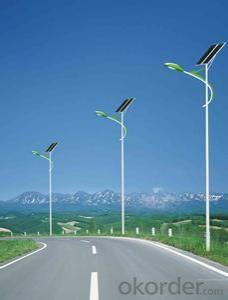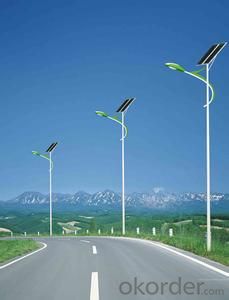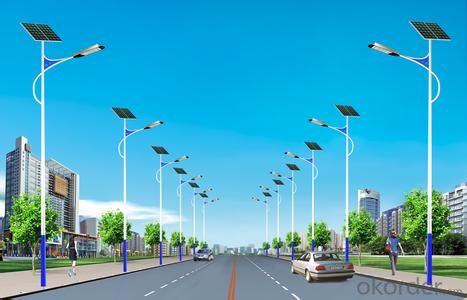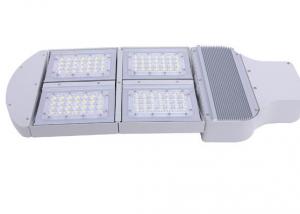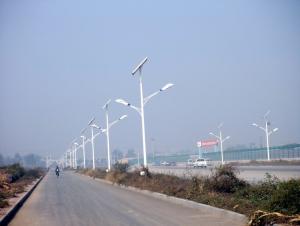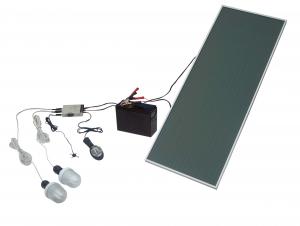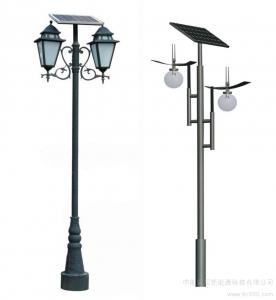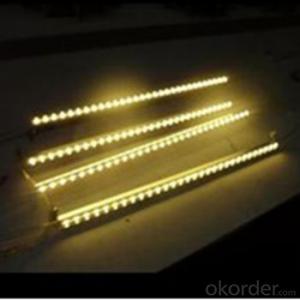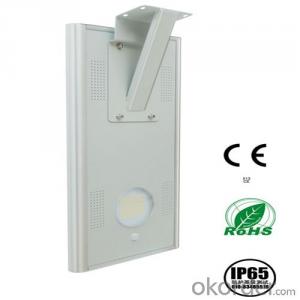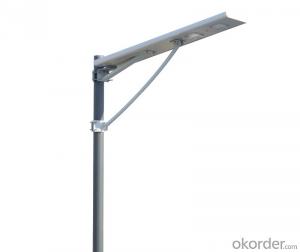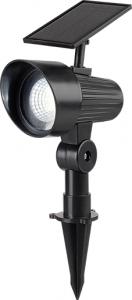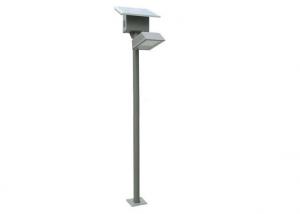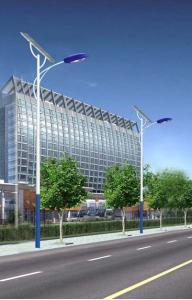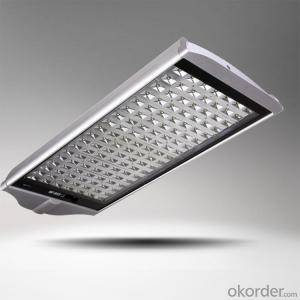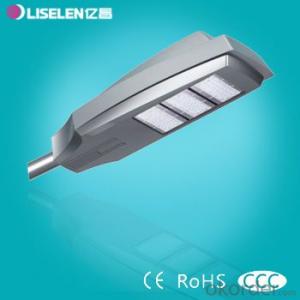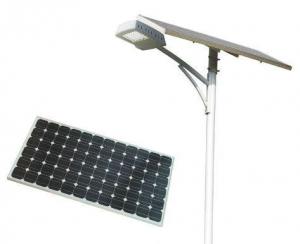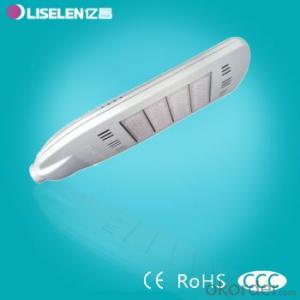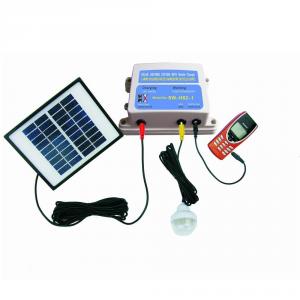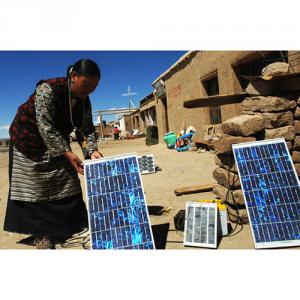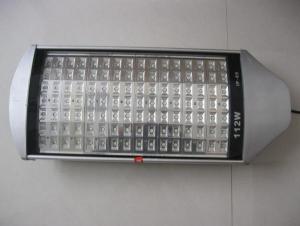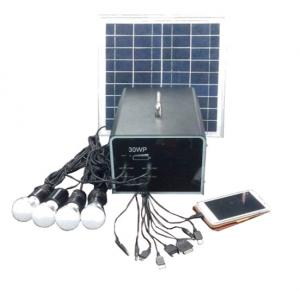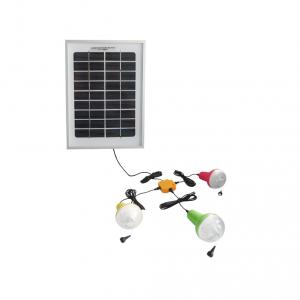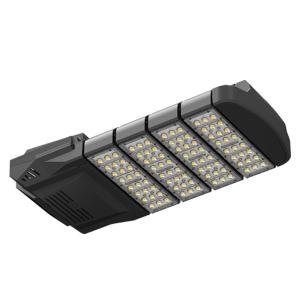T Post Solar Street/Road Lights
- Loading Port:
- China Main Port
- Payment Terms:
- TT OR LC
- Min Order Qty:
- -
- Supply Capability:
- -
OKorder Service Pledge
OKorder Financial Service
You Might Also Like
Specifications
1.Beautiful modular design
2.CREE chips 85LM/W
3.Beam angle 10-20 degree adjustable
4.Easy maintenance
5.LED 3 year warranty
Advantages:
brand new model 20-90W LED street light. Features are:
1. 20W, 30W, 40W, ...90W available (with Epistar or CREE LED).
2. 20-30W beam angle: lateral 120 degree, vertical 60 degree;
3. 40-90W beam angle: lateral 140 degree + 20 degree adjustable = 160 degree, vertical 60 degree;
4. Interpole distance can be 45-55M;
5. 20W per module by Epistar LED (85lm/W, 3 year warranty), 30W per module by CREE LED;
6. With CREE LED, 85lm/W or 95lm/W, with the best MEANWELL driver, 5 year warranty;
7. Pole socket 0 - 115 degree adjustable, so enable both lateral and vertical installation
8. Back cover can be easily opened, simple maintenance, lower cost.
9. Each LED module has specially designed lens, making luminance concentracted in a rectangular area, get much higher
LM than ordinary lens.
10. Heat sink also uniquely designed, <55°C degree, getting longer working life.
11. Built-in constant voltage driver in each LED module, making it works much stable and longer time.
We are also developing wireless ZIGBEE remote control system, that can use your conputer to regulate the brightness of
lamp. With light sensor, it can be automatically On/Off.
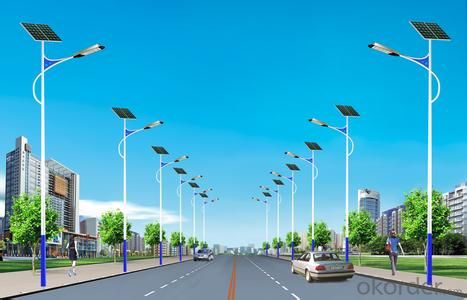
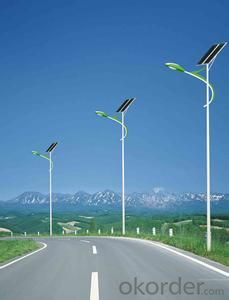
- Q: Can solar lights be used for outdoor camping showers?
- Yes, solar lights can be used for outdoor camping showers. They provide a convenient and eco-friendly lighting solution during nighttime showers, ensuring safety and visibility in outdoor settings.
- Q: Are solar lights suitable for emergency lighting?
- Indeed, solar lights prove to be suitable for emergency lighting. By harnessing the power of sunlight, solar lights possess the capability to emit light even in the midst of power outages or emergency situations. Equipped with a solar panel that absorbs sunlight and converts it into electricity for charging the integrated battery, solar lights continue to operate and supply illumination during emergencies or when electrical access is unavailable. Moreover, solar lights are commonly crafted to be energy-efficient, long-lasting, and portable, making them a pragmatic alternative for emergency scenarios. Their effortless installation and mobility enable them to be conveniently placed or relocated as necessary, guaranteeing a reliable source of lighting precisely when it is most crucial.
- Q: Are solar lights powered by the sun?
- Solar lights, without a doubt, derive their power from the sun. They encompass solar panels that seize sunlight during the day, transforming it into electrical energy. The accumulated energy is subsequently stored in rechargeable batteries housed within the solar lights, enabling them to illuminate at night. By harnessing renewable energy from the sun instead of depending on conventional power sources, solar lights present an eco-friendly and economical approach to illuminate outdoor areas.
- Q: What is the maintenance cost of solar lights?
- The maintenance cost of solar lights is relatively low compared to traditional lights that run on electricity. Solar lights are designed to be self-sustaining and require minimal maintenance. The most common maintenance tasks include cleaning the solar panels to ensure optimal energy absorption and replacing the rechargeable batteries, which typically last for 2-3 years. Additionally, checking and tightening any loose connections or components may be necessary to ensure proper functioning. However, overall, the maintenance cost of solar lights is significantly lower than the ongoing expenses associated with traditional lights, such as electricity bills and frequent bulb replacements.
- Q: Are solar lights resistant to damage from falling debris?
- Solar lights are typically built to withstand damage caused by falling debris. They are designed to be durable and resistant to weather, meaning they can handle minor impacts from debris. However, the level of resistance may differ depending on the design and quality of the solar light. To ensure better protection against debris, it is crucial to select solar lights made with high-quality materials and strong construction. Furthermore, it is advisable to install these lights in areas where the risk of large or heavy debris falling directly onto them is minimal. By doing so, the likelihood of damage is further reduced.
- Q: Do solar lights require a separate power source or battery?
- Solar lights do not require a separate power source or battery as they are designed to harness energy from the sun. They typically consist of a solar panel that collects sunlight and converts it into electricity, which is then stored in a built-in battery. This stored energy is used to power the light during nighttime or when the sun is not shining. The solar panel continuously recharges the battery during the day, allowing the light to function independently without the need for additional power sources or batteries.
- Q: Do solar lights emit heat?
- No, solar lights do not emit heat as they convert sunlight into electricity and do not produce any heat as a byproduct.
- Q: The advantages of solar garden lights
- Lamp appearance requirements do not be very high, relatively practical on the line.
- Q: Are solar lights resistant to hail and other weather elements?
- Yes, solar lights are generally resistant to hail and other weather elements. Most solar lights are designed with weatherproof materials and have durable casings that can withstand harsh weather conditions. The solar panels are often made with tempered glass, which is highly resistant to hail damage. Additionally, the majority of solar lights are built with IP (Ingress Protection) ratings that indicate their level of protection against water and dust. These ratings ensure that the lights can endure rain, snow, wind, and other outdoor elements. However, it is important to note that extreme weather conditions, such as extremely large hailstones or severe storms, can potentially damage solar lights. In such cases, it is advisable to take necessary precautions or temporarily remove the lights to avoid any potential damage.
- Q: Can solar lights be used in conjunction with traditional electric lights?
- Yes, solar lights can be used in conjunction with traditional electric lights. Solar lights are a great alternative to traditional electric lights as they are powered by the sun's energy and do not require any external electrical source. They are usually used for outdoor lighting, such as garden lights, pathway lights, or security lights. However, solar lights might not provide as much brightness or illumination as traditional electric lights. Therefore, combining solar lights with traditional electric lights can be a practical solution to ensure sufficient lighting in areas where it is needed. This combination can be especially beneficial in areas where sunlight might be limited or during cloudy days when solar lights might not receive enough sunlight to fully charge. By using both solar and electric lights, you can have a reliable and energy-efficient lighting system that meets your needs.
Send your message to us
T Post Solar Street/Road Lights
- Loading Port:
- China Main Port
- Payment Terms:
- TT OR LC
- Min Order Qty:
- -
- Supply Capability:
- -
OKorder Service Pledge
OKorder Financial Service
Similar products
Hot products
Hot Searches
Related keywords
